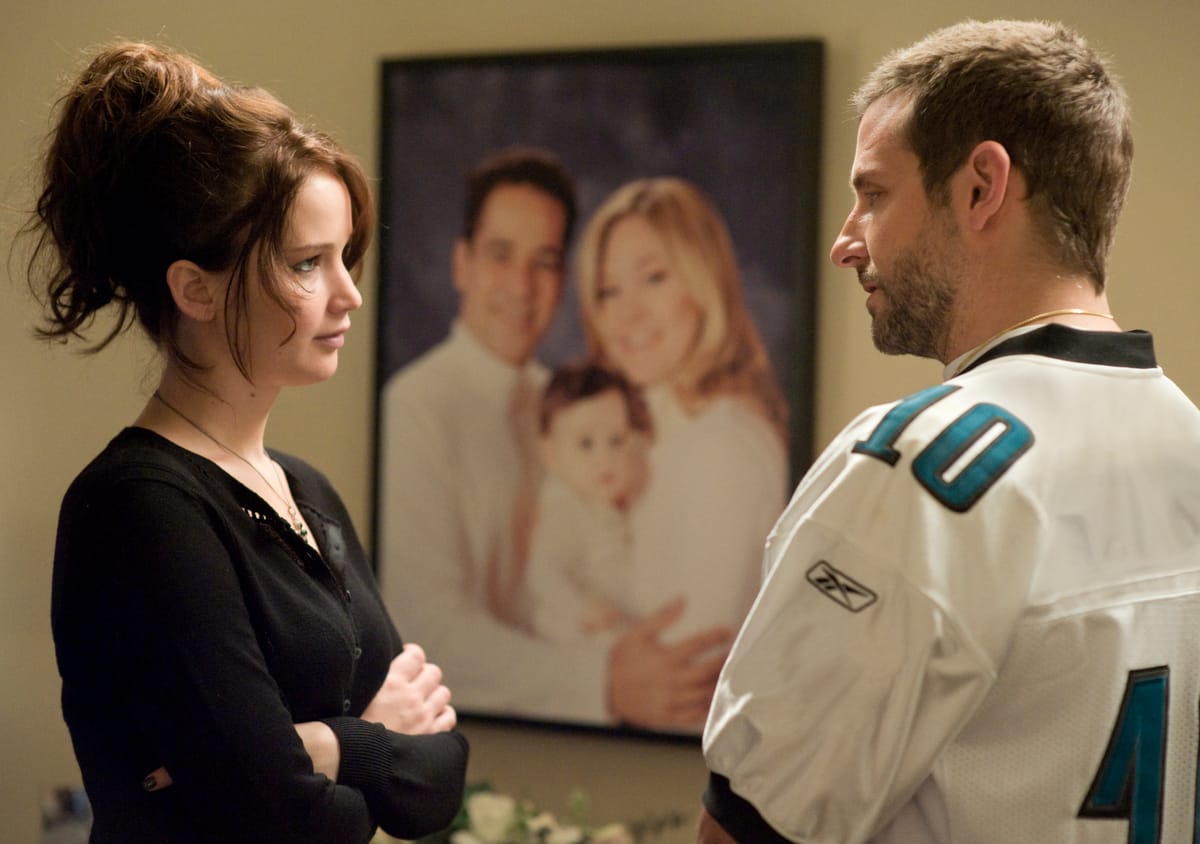MONDAY MOVIE REVIEW: Silver Linings Playbook

If there's anything that makes Silver Linings Playbook a better movie than Argo, which just won Best Picture, or Django or Lincoln or Zero Dark Thirty, it's that it truly surprised me.
I was surprised at each turn, I was surprised by the characters, and I was surprised by the ending.
Manohla Dargis at the New York Times calls Silver Linings "a movie that regularly feels as if it’s teetering on the edge of hysteria." But the director, David O. Russell, and Bradley Cooper and Jennifer Lawrence, make the craziness fun and tender. "Mr. Russell doesn’t just choreograph bedlam, he also tames it, and worrying that it might all go kablooey with one shout too many is one of the pleasures of his work," writes Dargis. "Watching him pull back from the brink can be a delight."
Bradley Cooper plays a guy with bipolar disorder. The movie, joyously, doesn't just mine bipolar for its subject matter, it's also stylistically bipolar, with some very heavy lows, and some dizzing highs. Russell makes us feel the mood shifts with his handheld camera, his soaring soundtrack, and even the lighting, which goes from utterly unnoticeable to operatic in a blink.
As somebody with bipolar in my family, I loved the little moments that felt true about Cooper's peformance. The way he went from loving and "normal" to violent and self-aggrandizing in about 0.2 seconds. The way fixating on very simple, yet nearly impossible goals was soothing to him. Like "I'm going to run everyday, get in shape, and get my wife back." Really, there's a straight line from the running to re-starting the marriage. It's a playbook.
Probably what I loved most, was what Lawrence and Cooper connect over in the first act: that they're both crazy – or more accurately – that feeling "crazy people" have that they're the only ones in the world who are sane.
Something both Lawrence and Cooper say at some point in the movie is, "We're the only ones who are honest. Everyone else just lies." I can't tell you how many times I've heard those exact words from my brother. There is a very fine line between being crazy and just telling the truth.
Imagine this: In the middle of the living room, there's this bottomless pit. It's not fenced off, not marked. It's just there. Everday you live your life, eating breakfast, showering, taking out the trash, watching Monday Night Football, just skirting around the pit – as if it wasn't there.
One day, your brother falls in. Everyone is shocked, and works really hard to haul him out. He barely survives. Then they all go back to pretending the pit isn't there.
But all your brother can talk about is the pit. Now, which one of us is crazy?
That's exactly what this movie gets about mental illness. It's so much more fungible than you know.



